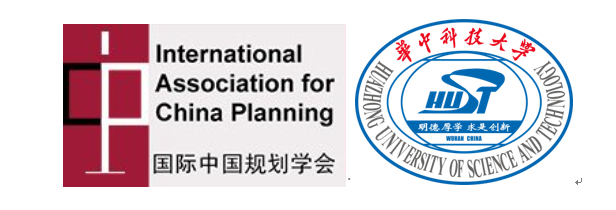第十六届国际中国规划学会(IACP)年会
中国·武汉
主办单位
国际中国规划学会(IACP)
承办单位
华中科技大学
协办单位
新建筑杂志社

我们诚挚地邀请您投稿并参加第十六届国际中国规划学会年会。
会议主题
1984年,世界卫生组织提出“健康城市”概念并发起“健康城市项目”,直接推动了全球范围内健康城市的发展与建设。2012年以来,世界卫生组织先后发布《可持续发展城市的健康指标》和《在可持续发展目标中提倡健康》两个文件,将健康城市建设正式纳入“可持续发展目标”宏伟蓝图。早在1986年的《健康促进握太华宪章》中就已经指出,规划是促进健康城市建设的重要途径之一。规划与健康城市建设的紧密结合,不仅促进了健康城市的理论发展和建设实践,且丰富了健康价值导向的规划理论内涵与研究方法,进而推进全球健康城市建设实践。
1994年,北京市东城区和上海市嘉定区作为健康城市建设试点,标志着中国正式步入健康城市规划建设实践。随着2017年“健康中国”国家战略提出,“将健康融入所有政策”理念成为推进新型城镇化、解决当前“城市病”问题的重要抓手和有效实现途径。近两年,疫情的持续肆虐进一步强化了人们对公共健康问题的高度关注,继而在全球不同区域引发了对经济发展、社会公平、环境保护等问题的深入探讨。在此背景下,如何结合新型城镇化建设,探讨城乡健康与可持续发展路径,成为规划领域持续关注的热点。
本次年会的核心主题是“城乡健康与可持续发展”,诚邀来自中国和世界各地的学者、规划师、工程师和政府管理人员进行学术交流,就健康城乡、可持续发展、双碳目标、韧性国土空间等问题展开深入交流与讨论,探讨在新的全球化与区域化发展语境下,全球城乡空间发展、规划与治理的先进理念与成功经验。
此次会议议题包括:
1. 城乡健康与公共安全
2. 国土空间规划、城乡统筹与区域规划
3. 气候变化与双碳政策
4. 生态环境保护与韧性城市
5. 城市住房与房地产
6. 城市更新与历史文化保护
7. 智慧城市与城乡规划新技术
8. 交通和基础设施规划
9. 社区规划
10. 经济发展与区域经济
11. 移民、社会融合与包容性城市
12. 城市设计与景观规划
13. 学术杂志专刊
14. 其他
论文摘要提交要求
会议形式:线上线下结合(视疫情变化可能会有更改)
会议关键日期
摘要投稿开放日期:1月15日
摘要截止日期:2022年3月1日
录取通知日期:2022年4月1日
(拟定)注册截止日期:2022年5月15日
(拟定)学生论文奖和旅行奖学金申请截止日期:2022年5月15日
院长论坛,会议现场注册时间和学术考察:2022年6月23日
全体会议和分组论文会议时间:2022年6月23日 - 27日
会议组委会
国际中国规划学会
主席:陈振华(俄亥俄州立大学)
联合主席:焦峻峰(德克萨斯大学奥斯汀分校);
执行委员:刘志林(清华大学);何颖(香港中文大学);陶涛(明尼苏达大学)
联系方式: iacp.conf@gmail.com
华中科技大学
主席:黄亚平
副主席:郭亮 刘合林
执行委员:赵丽元 单卓然 袁满 邓巍 林颖 鲁仕维
联系方式: iacpconference2022@163.com
CALL FOR ABSTRACTS
Conference Theme:
Urban-Rural Healthy and Sustainable Development
The 16th International Association for China Planning (IACP) Conference
Organized by
International Association for China Planning
Huazhong University of Science and Technology, China
Co-Organized by
Journal of New Architecture

You are cordially invited to submit abstracts to the 16th IACP Conference.
Conference Theme
In 1984, the World Health Organization (WHO) put forward a concept of Healthy City and launched the Healthy City Project, which directly promoted the development and construction of healthy cities on a global scale. Since 2012, the WHO has issued two documents: Indicators for Health in Sustainable Cities and Health indicators for Sustainable Development Goals, which have officially incorporated the construction of healthy cities into the grand blueprint of the Sustainable Development Goals.
Urban planning has been designated as an important policy tool to promote the construction of healthy cities as early as 1986 in the Ottawa Charter for Health Promotion. The integration of urban planning and the construction of healthy cities not only promotes the practice of healthy cities, but also enriches urban planning theories and research methodologies. The health-value orientedplanning has been gradually incorporated into planning and design guidelines, facilitating the implementation of global healthy cities.
In 1994, the Dongcheng District of Beijing and the Jiading District of Shanghai were selected as the pilot cities of Healthy City construction, marking China's official entry into the concrete practice of Healthy City.. With the publication of the Healthy China national strategy in 2017, the idea that Integrating Health into All Policies has become a critical approach to promoting sustainable urbanization and solving urban problems. The continued ravages of the COVID-19 pandemic, in particular, have heightened attention to global public health and sparked in-depth discussions on sustainable and healthy cities. In this context, exploring urban-rural healthy and sustainable development has become the top scientific topic in urban planning.
Urban-rural healthy and sustainable development is the theme of this annual conference. We cordially invite scholars and practitioners, engineers, and government officials in China and around the world to the conference to have academic exchanges and in-depth discussions on urban-rural healthy and sustainable development, carbon peaking and carbon neutrality goals, resilient territorial space and other related issues, and explore the advanced concepts and successful experiences of global urban-rural spatial development, planning and governance in the new context of globalization and regionalization.
The conference tracks include:
1. Urban-Rural Health and Public Safety
2. Territorial Spatial Planning, Urban-Rural Integration and Regional Planning
3. Climate Change, Carbon Peak, and Carbon Neutrality
4. Eco-environmental Protection and Resilient Cities
5. Urban Housing and Real Estate
6. Urban Renewal and Historical & Cultural Preservation
7. New Technologies for Smart Cities and Urban-Rural Planning
8. Transportation and Infrastructure Planning
9. Community Planning
10. Economic Development and Regional Economy
11. Migration, Social Integration, and Inclusive Cities
12. Urban Design and Landscape Planning
13. Special Issues of Academic Journals
14. Others
Abstract Submission
Organization: on-site conference complemented by online meetings (Depending on the epidemic)
Important Dates
Opening for abstract submission: January, 15, 2022
Deadline for abstract submission: March 1, 2022
Notification of abstract acceptance: April 1, 2022
Deadline for advance registration: May 15, 2022
Deadline for student award and travel grant applications: May 15, 2022
Dean’s forum, on-site registration, and technical tours: June 23, 2022
Conference: June 23-27, 2022
Conference Organizing Committee
IACP
Chair: Zhenhua Chen (The Ohio State University)
Co-chair : Junfeng Jiao (University of Texas at Austin)
Executive committee: Zhilin Liu (Tsinghua University)
Ying He (The Chinese University of Hong Kong)
Tao Tao (University of Minnesota)
Contact: iacp.conf@gmail.com
Huazhong University of Science and Technology
Chair: Yaping Huang
Vice chairs: Liang Guo, Helin Liu
Executive committee: Liyuan Zhao, Zhuorang Shan, Man Yuan, Wei Deng, Ying Lin,Shiwei Lu
Contact: iacpconference2022@163.com
Template for abstract
Abstract Title
Hongwei Dong
California State University, Fresno
Fresno, CA 93740
hdong@csufresno.edu
Zhenhua Chen
Affiliation,
address,
telephone and email address
The abstract should answer the following questions in 200-300 words. The technical committee will review abstracts based on how the questions are answered:
— What is the issue addressed and why is the issue important for policy or practice?
— What gaps or misunderstandings in the literature does the research fill or correct?
— How is the research conducted?
— What are the (expected) research findings?
— What are the conclusions for policy or practice and the implications for further research?
Keywords: three to five keywords